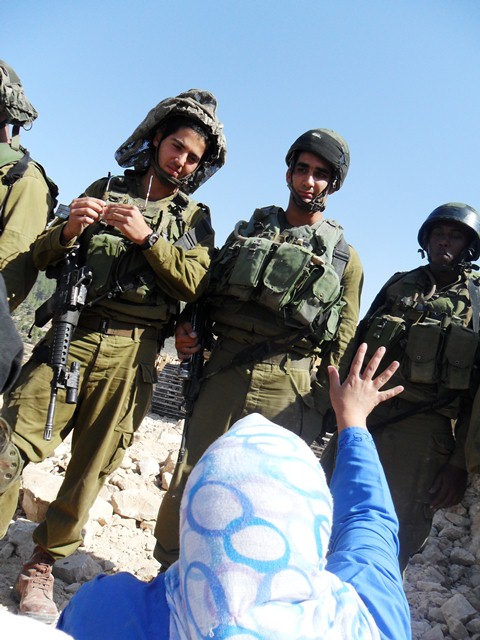Tag: Apartheid Wall
-
Ni’lin continues with strong will despite Israeli raids
8 August 2011 | International Solidarity Movement, West Bank and Ni’lin Sons Group On the 7th of August at 2:30am, 13 military jeeps entered the village of Ni’lin, took control of its southern region, and proceeded towards the nearby village of Qibya to arrest a Palestinian following an aggressive raid the previous night. Locals curious…
-
Military resorts to violence in Al Walajah peaceful demonstration
27 July 2011 | International Solidarity Movement, West Bank A peaceful protest against the construction of the apartheid wall in the village of Al Walajah was brought to a violent end by the Israeli army this morning with five arrests. At 09:00 AM a group of Palestinians, Israelis and international activists walked through the village’s…
-
Ni’lin demonstrator hit with shrapnel during weekly protest
23 July 2011 | Ni’lin Village Today in Ni’lin, one demonstrator was hit with shrapnel and dozens suffered from tear gas inhalation during the suppression by the Israeli occupation forces of the anti-wall weekly protest. The march organized by The Ni’lin Popular Committee was supported by many Palestinians, International’s and Israeli peace activists. Upon arrival…

